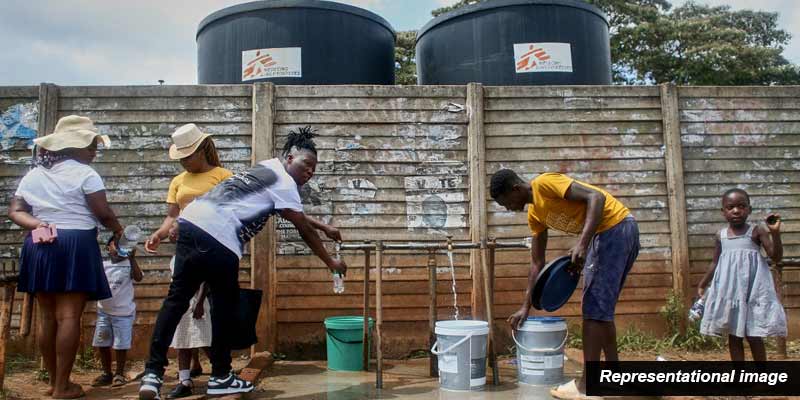- World
- May 28
Cholera cases surge in Sudan’s Khartoum
• More than 7,700 cholera cases — including over 1,000 cases in children under the age of five — and 185 associated deaths have been reported in Sudan’s Khartoum state since January 2025, according to health authorities.
• Since the beginning of the brutal conflict, more than 3 million people have been forced to flee their homes in Khartoum State and the violence has upended the lives of millions.
• With large parts of the state becoming more accessible, more than 34,000 people have returned to Khartoum State since the beginning of 2025. Most are returning to damaged homes in areas where basic services – including critical water and sanitation, are largely unavailable.
• Cholera cases have surged significantly from 90 reported cases per day to 815 reported cases per day between May 15 and 25 — a nine-fold increase over just 10 days.
• UNICEF is implementing a multi-pronged cholera response in Khartoum, targeting high-risk communities and supporting essential water infrastructure, including the provision of water treatment chemicals (polymer and chlorine) and a 1,000 kilovolt-amperes generator to sustain operations at Al Manara Water Treatment Plant, serving over one million people in Karrari and Old Omdurman.
• So far this year, UNICEF has delivered more than 1.6 million oral cholera vaccines to Sudan and is supporting immunization campaigns in affected areas.
Key facts about cholera:
• Cholera is an acute diarrhoeal infection caused by eating or drinking food or water that is contaminated with the bacterium Vibrio cholerae.
• Cholera remains a global threat to public health and is an indicator of inequity and lack of social development.
• Cholera is an extremely serious disease that can cause severe acute watery diarrhoea with severe dehydration.
• It takes between 12 hours and five days for a person to show symptoms after consuming contaminated food or water.
• Cholera affects both children and adults and can kill within hours if untreated.
• Most people infected with Vibrio cholerae do not develop any symptoms, although the bacteria are present in their faeces for 1-10 days after infection. This means the bacteria are shed back into the environment, potentially infecting other people.
• Most people with cholera have mild or moderate diarrhoea and can be treated with oral rehydration solution (ORS). However, the disease can progress rapidly, so starting treatment quickly is vital to save lives. Patients with severe disease need intravenous fluids, ORS and antibiotics.
• Cholera can be endemic or epidemic. A cholera-endemic area is an area where confirmed cholera cases were detected during the last three years with evidence of local transmission (meaning the cases are not imported from elsewhere).
• A cholera outbreak/epidemic can occur in both endemic countries and in countries where cholera does not regularly occur.
• Cholera is often predictable and preventable. It can ultimately be eliminated where access to clean water and sanitation facilities, as well as good hygiene practices, are ensured and sustained for the whole population.
• Measures for the prevention of cholera mostly consist of providing clean water and proper sanitation to populations who do not yet have access to basic services, as well as vaccination with oral cholera vaccines.
• Health education and good food hygiene are also essential.
• While vaccination is an important tool, safe drinking water, sanitation and hygiene remain the only long-term and sustainable solutions to ending cholera outbreaks and preventing future ones.
Manorama Yearbook app is now available on Google Play Store and iOS App Store

